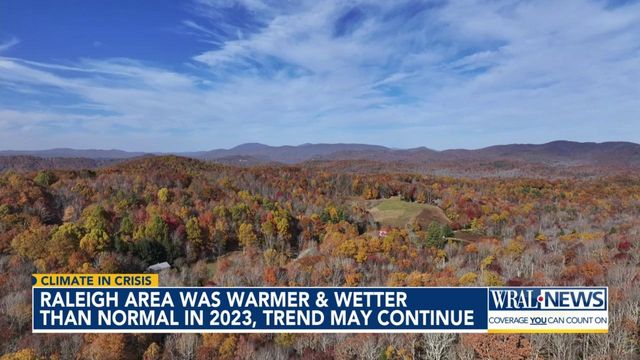Warmer and wetter winter in Raleigh area has climate change footprint, according to scientists
The Raleigh area was much warmer and wetter than normal in December, according to a new analysis by Climate Central.
This year stood out as the second wettest December in Raleigh from data going back to 1887.
Raleigh and Durham saw 7.01 inches of precipitation, which was 207% more rain than the normal amount, according to data from regional branches of NOAA and normal is defined relative to the past 30-year average.
Climate change can correlate with rainfall because warmer air can hold more water. The basic idea is that for every 1°F increase in temperature, the atmosphere can hold 4% more water vapor.

"It can increase the potential for big rain events," said Andrew Pershing, VP for Science at Climate Central, a Princeton-based climate science non-profit.
That is consistent with North Carolina's December storms, that each brought more than a normal month's worth of rain.
Last month was also about 4.2% hotter than normal in Raleigh, with an average temperature of about 49 degrees.

That’s part of a wider winter warming trend, with Raleigh and Durham seeing 16 more warm winter days than they did in 1970.
"We have a lot of plants that require a certain number of hours of freezing temperatures and, if they're not getting those, they're not going to produce the fruit and flowers that we expect in the spring," Pershing said. "And it can really mess with some of the migratory patterns."
In addition to warm temps impacting the ecosystem and biodiversity, it can have an impact on recreation and tourism too.
Many North Carolina ski mountains including Beech, App and Sugar opened weeks later than the planned opening days.
NASA scientists say 2023 was the hottest on record.
"Which means it was the warmest year in 125,000 years," Pershing said. "This is not normal, this is not something that would happen without humans putting carbon dioxide into the atmosphere and we know that 2024 is very, very likely to be even warmer."











